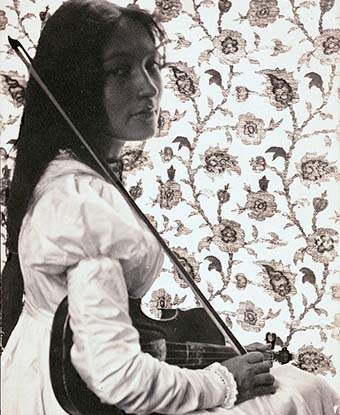Magda PORTAL (1900–1989) was a Peruvian socialist poet and leader of the Aprista social democratic party (APRA). She contributed to the Peruvian literary movement of the early 1900s, which advocated for indigenismo, anti-imperialism, women’s rights, and property rights. The movement was inspired by other liberation movements, such as the Mexican Revolution (1910–1920) and Argentina’s University Reform Movement (1918). Her poetry incorporates romanticism with overtly socialist messages. Additionally, she wrote extensively about her own experiences, particularly exclusion from male-dominated politics.

Portal is notable as a founder of APRA, one of the oldest political parties in Latin America. With her influence, it became the first Peruvian political party to recruit women. However, she abandoned it when it shifted to the ideological center. She wrote her only novel, La Trampa, to represent her negative experiences with the party before joining Peru’s Communist Party. Although she is renowned for being a woman in leftist spheres, her writings on other issues are significant. One example of her socialist poetry is “Proletarian Song.” Its vivid imagery of manual labor expresses the necessity of class reform. Her poetry often advocated for indigenous people’s integration into the state and society as well. Furthermore, she valued unity. Her correspondence reveals her desire for Latin American unity against the imperialist United States. She saw the Mexican Revolution as the model that all Latin American countries should follow, in order to not only protect individual rights domestically, but also create ideological unity across the region.
FURTHER READING
Portal, Magda. “Magda Portal Papers,” November 29, 1913. University of Texas Libraries.
Weaver, Kathleen. Peruvian Rebel: The World of Magda Portal, with a Selection of Her Poems. Illustrated edition. University Park (Pa.): Penn State University Press, 2011.
Portal, Magda, and Daniel R. Reedy. Hope and the Sea by Magda Portal. Translated by Kathleen Weaver. Dulzorada, 2021.
Leave a Comment
